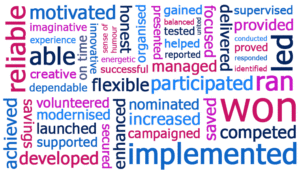Are you feeling drained from doing the same old job, day in, day out? Luckily, Steve Usher is on hand to offer existing and aspiring call centre managers his top ten tips on how to go about clinching that role they’ve always wanted.
1 Start by taking stock
Ask yourself why you want to leave your job? If your current role changed, would you still leave? If your motivation is purely financial, how would you react if, when you hand in your notice, your employer offers to improve your salary? Having said that, it’s also worth remembering that, on average, 70 per cent of people who tender their resignation, and are then talked in to staying, decide to leave within the following six months. The chances are that if you’ve got to the stage where you’re prepared to hand in your notice, you really are ready to embark on the steps below.
2 Prepare to sell yourself
Your CV is your strongest marketing tool. It needs to make an impact and engage the reader, as well as sell you to a prospective new employer. The golden rule is to keep it to a maximum of three pages (of A4) and clearly detail your role and key achievements. Always include facts and figures that demonstrate where you have added value and made tangible differences.
In addition to your vocational achievements, it’s sound practice to provide some brief personal achievements as this will provide a more ’rounded’ and insightful view of your character and personality. This could include, say, your latest London Marathon time, voluntary commitments and other interests.
3 Get help if you need it
Many people still fail to produce a good quality CV. A well-written CV – one which contains appropriate information – greatly increases your chances of securing your next job. For many people, though, putting together a CV is an onerous and confusing task. After all, it can be hard to be objective about you.
Pay particular attention to the format, spelling and grammar. If your CV is poorly laid out and littered with spelling mistakes and grammatical errors, this will only make a poor and long-lasting first impression.
If you know that you need help or you suspect that your CV is letting you down, use a CV writing consultancy. While there will be a cost, if it helps you get your next managerial role, it’s a worthwhile investment.
4 Using specialists
If you are a manager or you are looking for a management role, you can use an agency. You can either use a call centre specialist or an agency that is local to you.
A specialist will know people in your industry sector, have an insight in to the work you do and be in a position to advise you on your career path and help to manage your expectations in line with your competencies and experience to date. They will know which role will suit you and be aware of the firms that are looking for people like you.
As well as specific roles, it’s worth registering with an agency to ensure you know what jobs are available, as they arise. They will often have jobs that are not advertised. Maintain a regular dialogue in order to establish rapport and register with no more than three agencies.
5 Be proactive
Don’t just rely on agencies. Use your own resources too. Carry out some research on companies in your chosen field, especially on key employers. Refer to reliable and regularly updated sources, such as “The Times 100” and approach companies where you believe your skills could be in demand. Send the designated HR or senior operational contact a well-written letter and personal profile. A good tip is to submit a shortened version of your CV detailing your key achievements. It’s always worth checking via the company’s switchboard who you should address the letter to.
6 Research
It’s very important to do your homework. Draw up a shortlist of companies you are interested in working for. Write down why you want to work for this company. Explore, too, opportunities for career enhancement, the company’s reputation within the industry, whether it has any innovative service offerings, and which location you are likely to work from.
Typically you can gather this sort of information online via search engines, such as Google, or via the company’s website, which will often have a recruitment or careers section. This can prove invaluable for gleaning information, such as salary bandings, location of offices, key personnel within the business and even an insight in to future company strategy.
7 Stay in touch
Stay up to date with developments in your industry by reading local and national or specialist trade press. By subscribing to industry specific journals, you’ll often get a lot of useful information and you can also register to receive e-mail alerts from specific organisations that provide data from your sector.
By keeping your finger on the pulse you will be ideally placed to spot and identify trends and potential opportunities within the industry such as company mergers and acquisitions, expansion or closure plans and offshore/onshore moves. Remember, employers are keen to employ professionals who have a passion and knowledge of their sector.
8 Be flexible
A lot of job hunters overlook the need to take time off for interviews. Some interviews will be offered at short notice, so it’s important to be flexible and willing to attend meetings outside of working hours. A good tip is to make any prospective employer aware of likely availability, should they be interested in meeting you. Companies might also be happy to interview you by telephone in the first instance if you cannot attend in person, rather than missing out on the first round of selection.
If you are using a consultancy for your job search, discuss your likely availability with them and they will try to accommodate you as far as possible. The more information the agency has about you, the better they are at representing you in your marketplace.
9 Be prepared
When you are invited to an interview, make sure you’re prepared. Understand the role and know about the organisation. Carefully review the role description and pay particular attention to the ‘competencies’ required. Usually, your interview will consist of both biographical and competency-based interview questions. Prepare relevant examples of your own experience to meet the competencies the business is asking for.
Use the interview to understand the role and demonstrate your suitability with previous, relevant examples. Remember, it’s very important to ask questions. A good interviewer will factor in the questions you ask, so make sure they are relevant and meaningful.
10 A successful interview
It’s a cliche, but first impressions really do count. Here’s how to make sure you make a good first impression:
- Be on time and allow plenty of time to travel to your destination.
- Dress in suitable business attire, with clean clothing, shoes and finger nails. If you smoke, try to have your first cigarette after the interview.
- Greet your interviewer with a firm handshake and give good eye contact.
- Remember, the interview is as much about you finding out about the company as it is for the company to find out about you.
- A good ice-breaker is to ask your interviewer how long they’ve worked at the company and what made them decide to work there.
- When the interview begins, stay calm and think your responses through before answering. Offer positive, relevant comment and avoid one-word answers.
- Show your enthusiasm and remember that reservations can be dealt with later.
- Close the interview positively, thank the interviewer for his/her time and ask when and how you can expect to receive feedback.

Steve Usher is director of the recruitment firm Call Centre Associates
Author: Jonty Pearce
Published On: 21st Mar 2007 - Last modified: 12th Aug 2025
Read more about - Expert Insights, Career, Jobs















